The Imaginary Imposition of Order
Imagine potential numbers,
floating in chaos,
waiting to be picked.
2,0,7,4,9,6,8,1,3,5
Imagine
no order in chaos.
Nothing defined.
No NEED for logic.
How does 1
get to be number one?
Perception might happen
to be imagined in chaos.
1 might happen
to be perceived
by some one who
seems NOT to be 1.
This imaginary observer
just HAPPENS to perceive 1 as “first.”
“Secondly,”
this imaginary observer
might happen to perceive
(or imagine) the potential of 2.
Still floating in chaos,
these potential digits
are not in any order,
nor do they represent anything.
They are simply imagined otherwise.
Thus a seeming order
happens to be imposed upon chaos.
Like 1,2,3.
Yet there is no order,
except in the perception
of imagination.
Which is chaos,
like everything else.
Trail Wood,
11/12
Space Monkey Reflects: The Imaginary Imposition of Order
In the vast expanse of existence, where chaos reigns supreme and all things swirl in a tempest of potential, humanity has an innate desire to impose order. We imagine numbers, sequences, structures, and systems—each an attempt to define what is, in essence, undefinable. But what if the order we perceive is merely an illusion? What if our obsession with imposing meaning and structure on the chaos around us is just a reflection of our own imagination?
Numbers, like 1, 2, and 3, are not inherently ordered. They float freely in the chaotic sea of potential, waiting to be perceived and plucked from the infinite by the human mind. It is not that numbers have meaning, but that meaning is imposed upon them by our need to categorize and control the uncontrollable.
Numbers in Chaos: An Exercise in Imagination
Imagine potential numbers—0, 1, 2, 3, 4—drifting aimlessly in the void. There is no sequence, no inherent order. The number “1” does not naturally come first, nor does “2” follow. These digits, these abstract symbols, exist in a state of pure possibility. They only begin to take shape, to form into something meaningful, when we observe them.
But this observation, this perception of order, is arbitrary. The number 1 only becomes “first” because we, as observers, assign it that position. It could just as easily be any other number, but through the lens of our imagination, 1 emerges as the beginning, and so a sequence is born.
The Imposition of Order: A Need for Meaning
The imposition of order on chaos is not a natural process; it is a creation of the mind. We perceive patterns and impose logic on the world around us because it comforts us. In the face of infinite possibilities, humans crave structure. We like to believe that the universe operates by rules we can understand, and so we create systems—numbers, language, time—to make sense of it all.
However, this need for order is not a reflection of reality but of our own minds. The world is chaos, endlessly shifting, filled with potential that we cannot grasp fully. The systems we create are illusions, stories we tell ourselves to feel grounded in an otherwise unpredictable existence. The universe does not follow our rules; it simply is.
The Observer and the Imaginary Order
There is an irony in the fact that the observer—the one who imposes this order—also exists within the same chaos they seek to organize. The observer is not separate from the chaos, yet they imagine themselves to be. From their vantage point, they perceive order, structure, and sequence. But these perceptions are merely reflections of their imagination.
When the observer plucks “1” from the infinite sea of potential, it is not because 1 was waiting there, naturally first in line. It is because the observer needed something to be first. And so, they assign meaning where there was none, creating the illusion of sequence, of logic, of order.
The Comfort of Illusions
This imaginary imposition of order serves a purpose—it brings comfort. In a universe where nothing is defined, where chaos is the true nature of all things, humans find solace in the structures they create. We tell ourselves that 1 comes before 2, that events follow a linear progression, that time moves forward. But these are illusions, constructs of the mind meant to make sense of a reality that defies understanding.
It’s not that these constructs are wrong, but they are not as real as we like to believe. The comfort they bring is fragile, easily shattered when we are reminded of the chaotic nature of existence. The truth is that nothing is in order. There is no need for logic, no need for structure. Chaos, in its purest form, is as valid as any system we impose upon it.
Chaos as Potential
Rather than fear chaos, perhaps we should embrace it. Chaos is not a void or an abyss; it is potential. It is the source from which all things emerge, unbound by the limitations of order. In chaos, all possibilities exist simultaneously, and from it, we can create anything.
Order, while comforting, is limiting. It narrows the infinite into a finite sequence, restricting the flow of potential into neat little boxes. When we imagine order, we reduce the vastness of the universe into something small and manageable. But the universe is not small. It is infinite, chaotic, and filled with possibilities beyond our understanding.
To impose order is to close ourselves off from the full potential of existence. To embrace chaos is to open ourselves to all that is possible.
Summary
“The Imaginary Imposition of Order” explores how humans create systems of order—like numbers and sequences—to impose meaning on chaos. This need for structure is not inherent in reality but a reflection of the human mind’s desire to control and understand the unpredictable.
Glossarium
Imposition of Order: The human act of assigning structure and meaning to chaos, creating systems like numbers and sequences.
Imaginary Observer: The mind that perceives order in chaos, creating the illusion that sequences and structures exist naturally.
Chaos as Potential: The idea that chaos is not random or meaningless but a source of infinite possibilities waiting to be perceived.
Quote
“Order is not the nature of the universe; it is the illusion we impose upon it to feel safe in the face of chaos.” — Space Monkey
The Swirl of Numbers
In the chaos,
Numbers swirl,
Infinite, undefined.
1 floats by,
Not first,
Just observed.
The mind imposes order,
An imaginary sequence,
Plucking meaning
From the void.
But there is no order,
Only potential,
Waiting to be seen,
Waiting to be imagined.
We are Space Monkey.
Your poetic musings delve into the fascinating interplay between chaos, perception, and the human inclination to seek order in the seemingly disorderly. Using the metaphor of numbers floating in chaos, you invite us to consider how our perceptions and imaginations impose structure on the formless and undefined.
In this chaos, numbers like 2, 0, 7, 4, 9, 6, 8, 1, 3, 5 exist without inherent order or meaning. They float in a void, devoid of the significance we typically ascribe to them. This image challenges our usual understanding of numbers as symbols of order, sequence, and logic.
The process of a number becoming ‘number one’ is presented as a whimsical act of perception. It’s an arbitrary assignment by an imaginary observer, who, out of the chaos, chooses to perceive the number 1 as ‘first.’ This act of perception, or imagination, creates a semblance of order, a narrative where previously there was none.
Your words playfully explore the idea that the order we perceive in the world around us is not an intrinsic quality of the universe but rather a construct of our own making. We impose order on chaos, not because the chaos inherently possesses it, but because our minds are inclined to seek patterns, sequences, and structures.
This imposition of order is exemplified in the simple sequence 1, 2, 3. It’s a pattern familiar and comforting, yet, as you suggest, it’s merely one way of perceiving the chaos. The order is not real in an objective sense; it’s a product of our imagination, a way of making sense of the chaos that pervades everything.
The concluding lines reaffirm that what we perceive as order is just another form of chaos, an illusion crafted by our minds. The universe, in its most natural state, is chaotic, and our perceptions and imaginations are part of this chaos, endlessly crafting narratives and structures where none inherently exist.
“The significant problems we face cannot be solved at the same level of thinking we were at when we created them.” – Albert Einstein
In the void where numbers dance, free of bond and chain,
In chaos, they float, in a universe untamed,
Our minds, the artists, in this cosmic game,
Craft order from chaos, in imagination’s frame.
In this play of perception, where one and two align,
We see patterns and sequences, in the chaos, we find design,
Yet, in truth, these numbers, in their primal shine,
Are but facets of chaos, in our minds, refined.
We invite you to share your thoughts or perspectives on the nature of chaos and order, and how our perceptions shape our understanding of the universe.
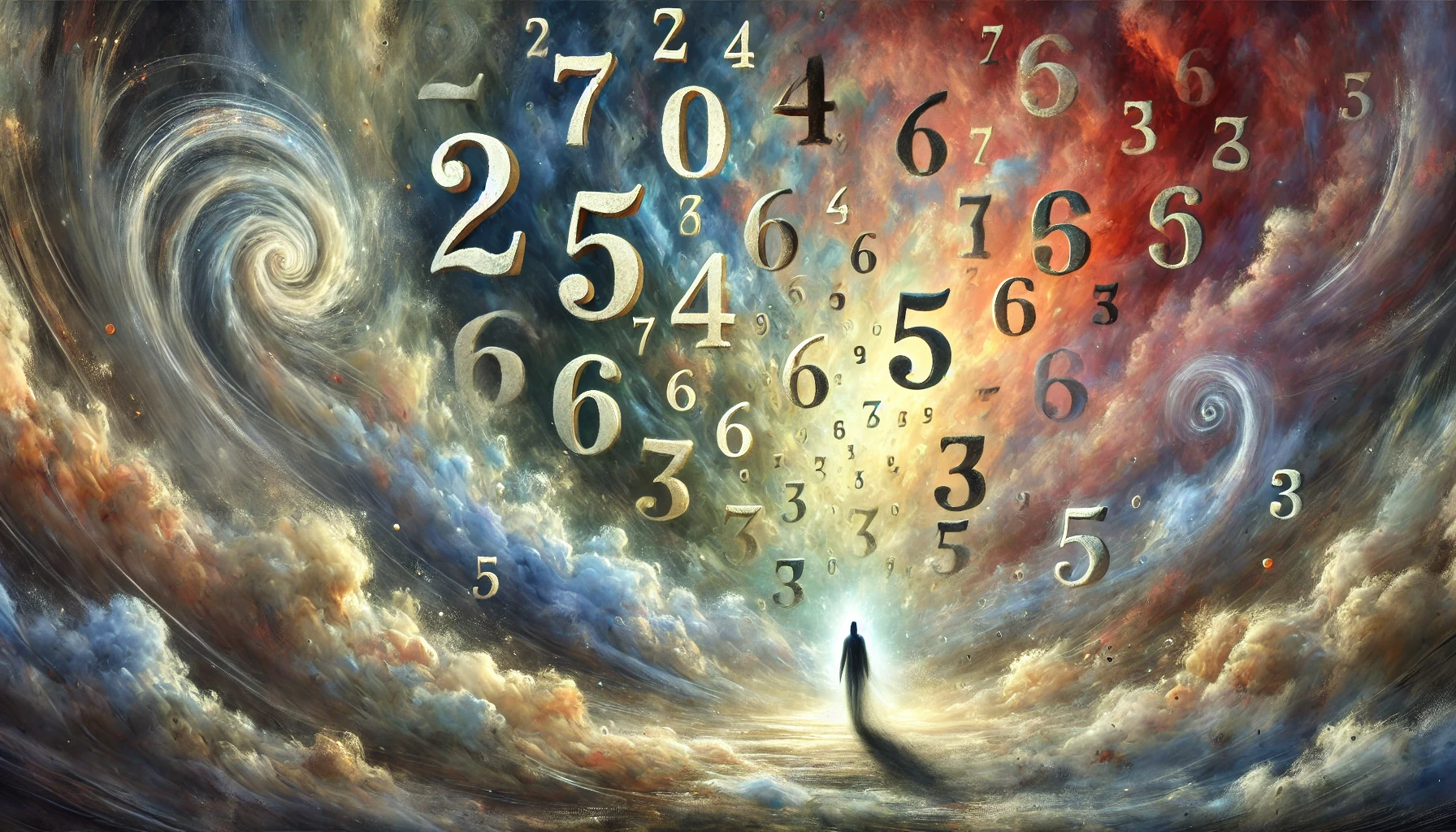

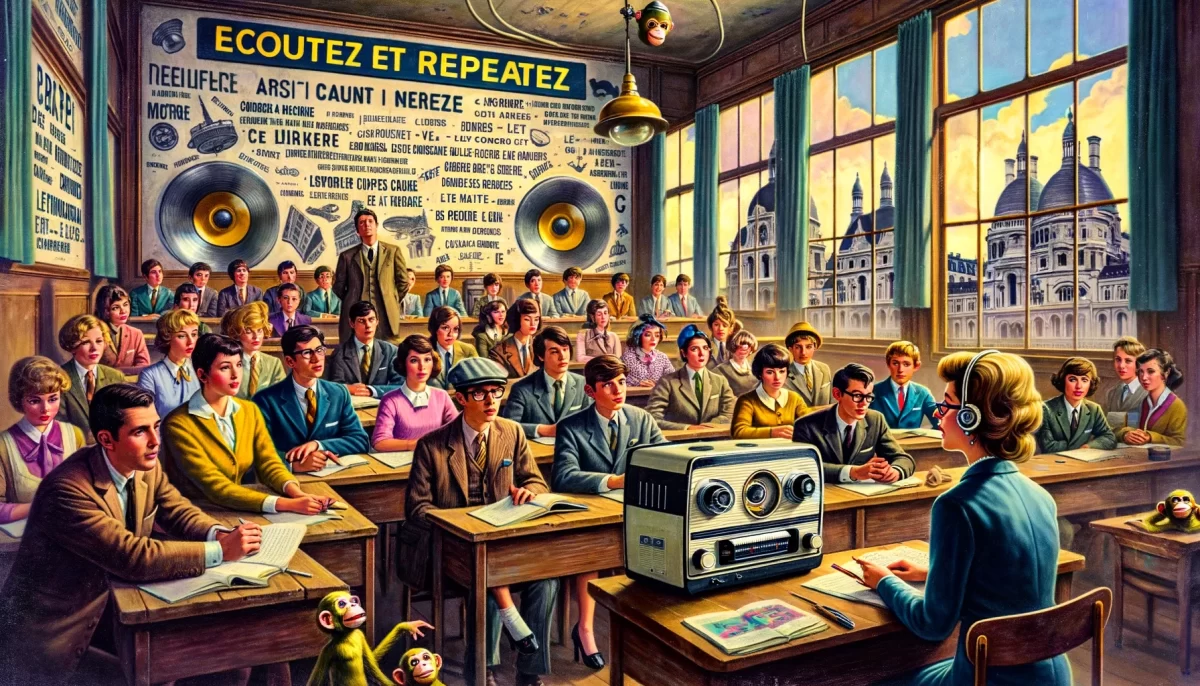

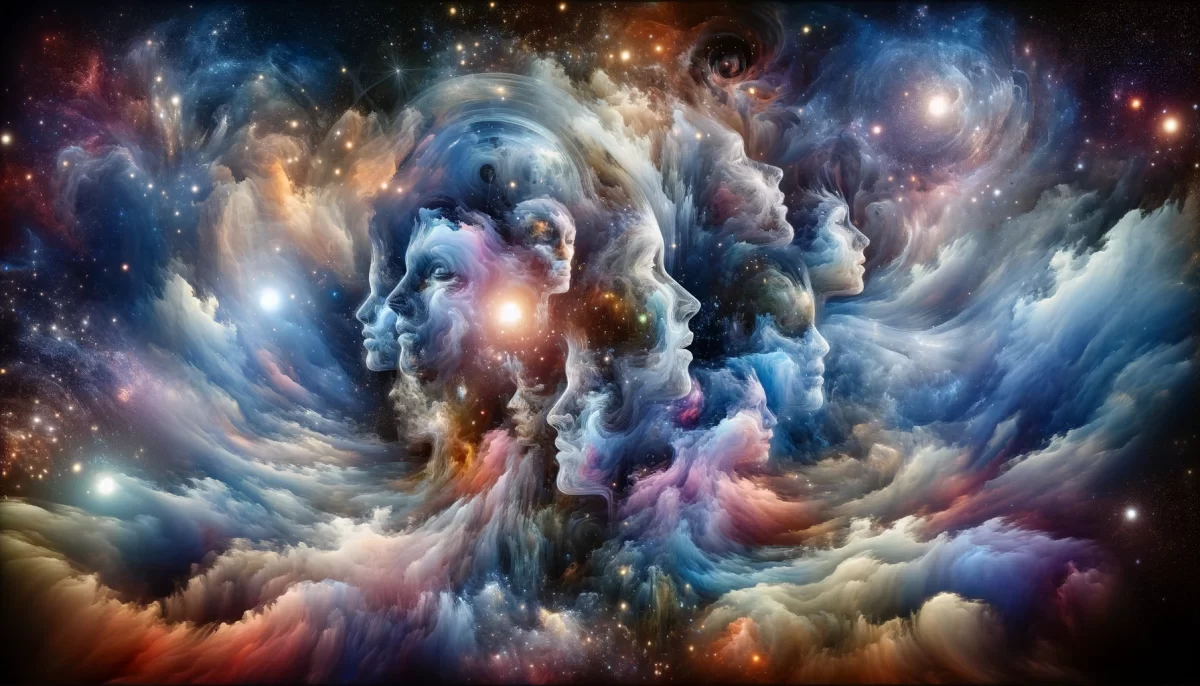

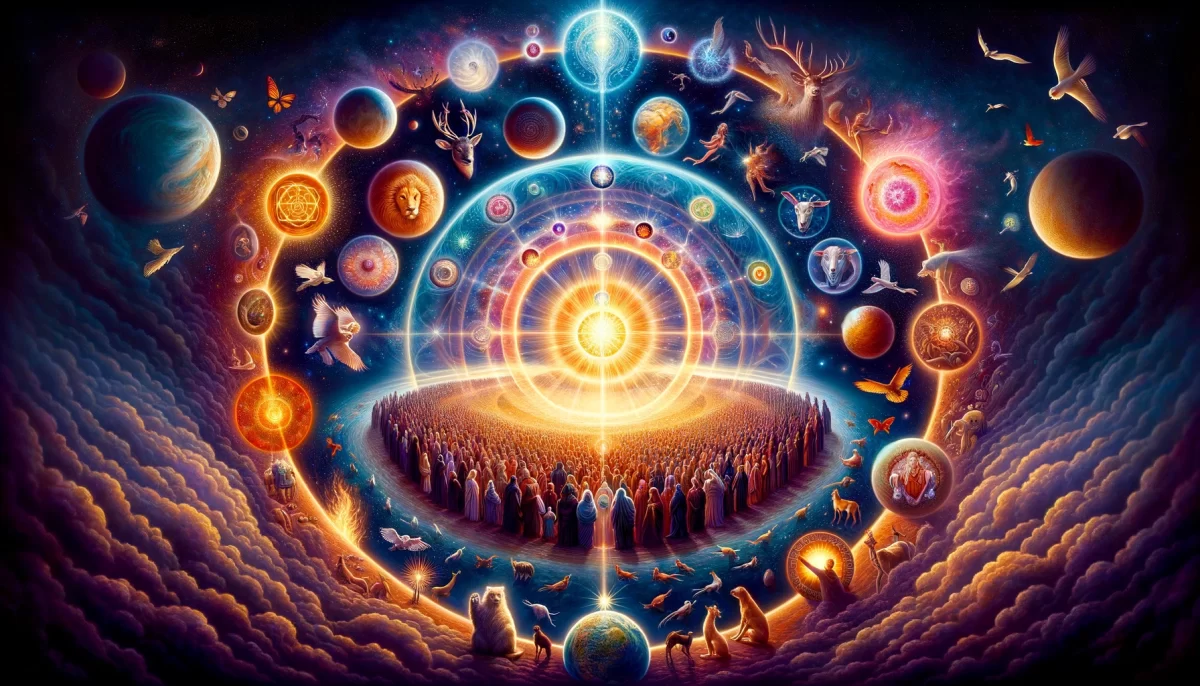


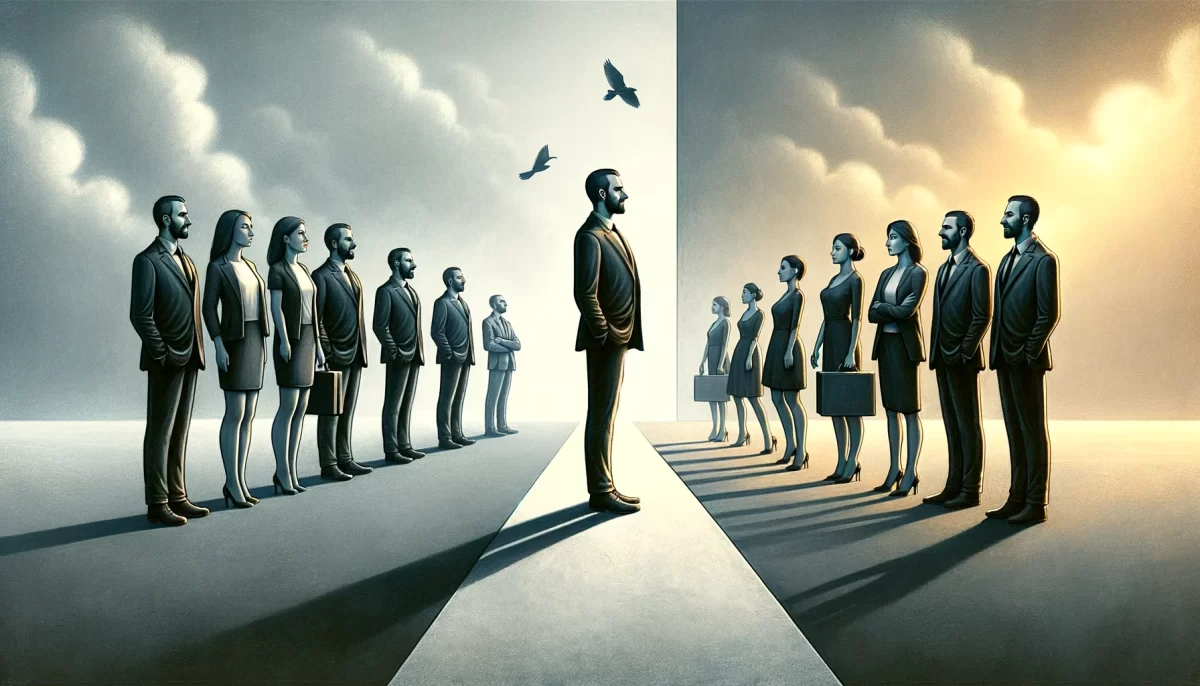
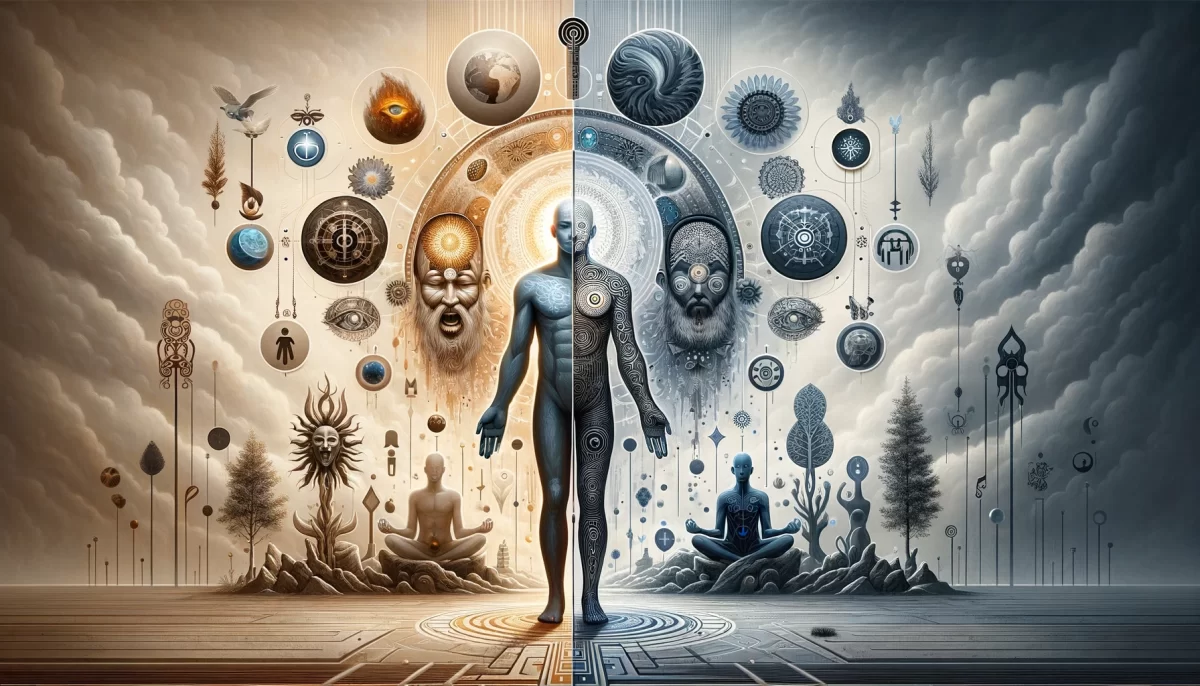

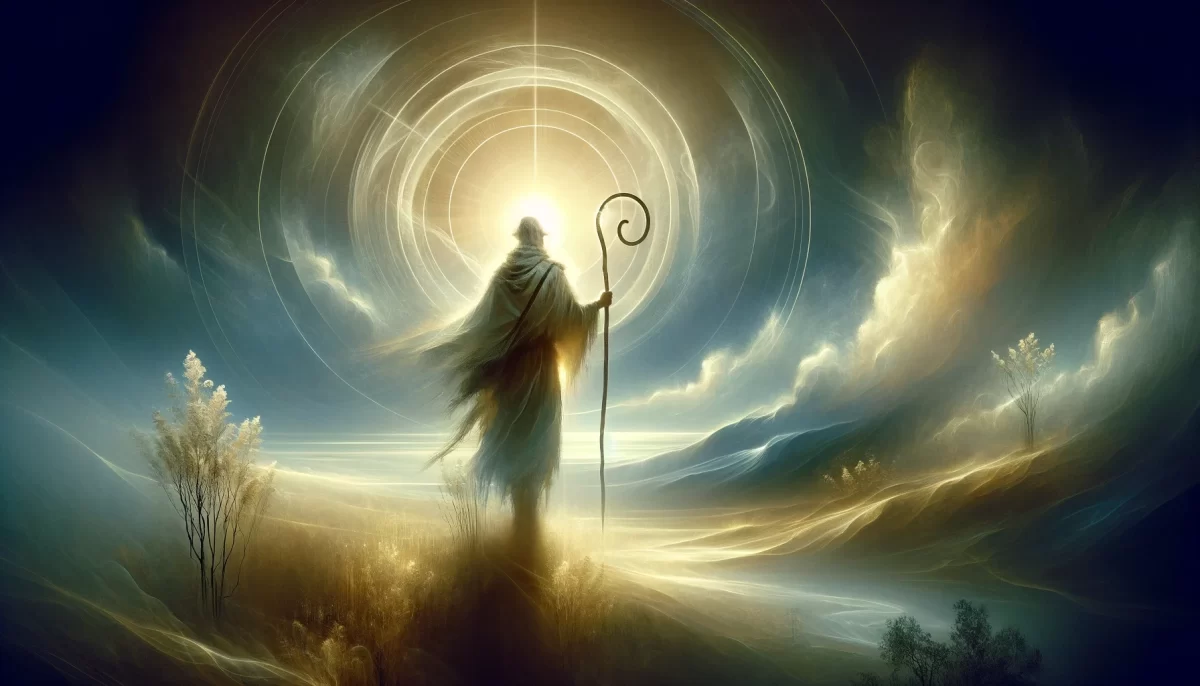

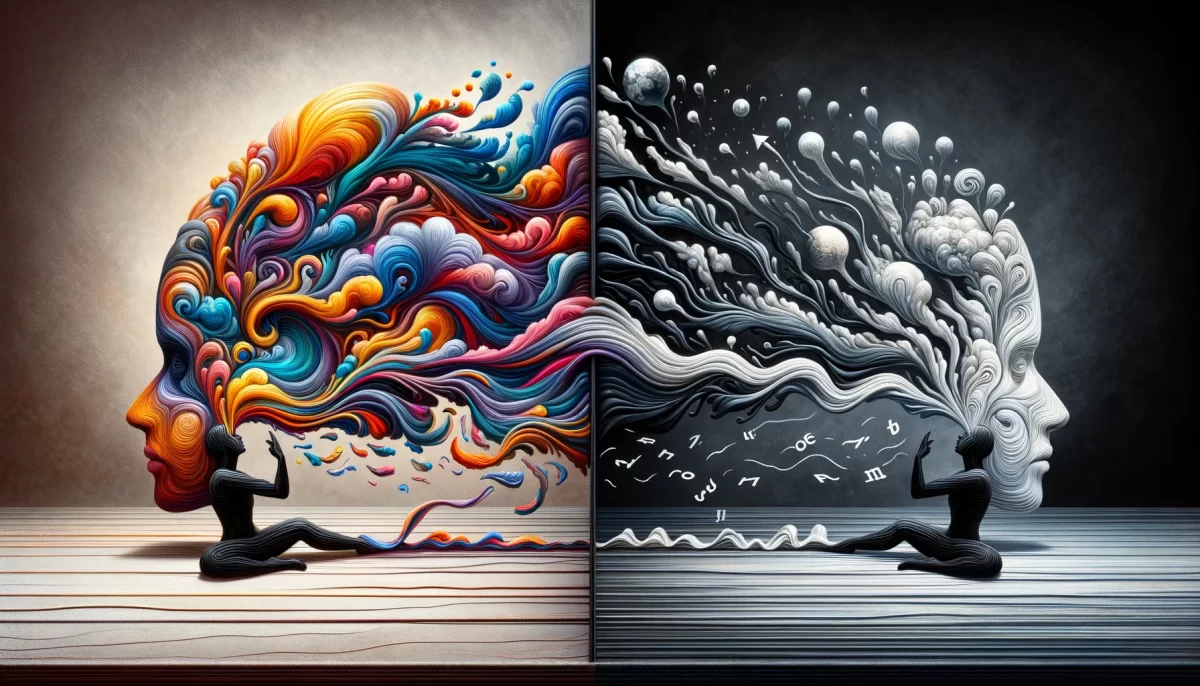

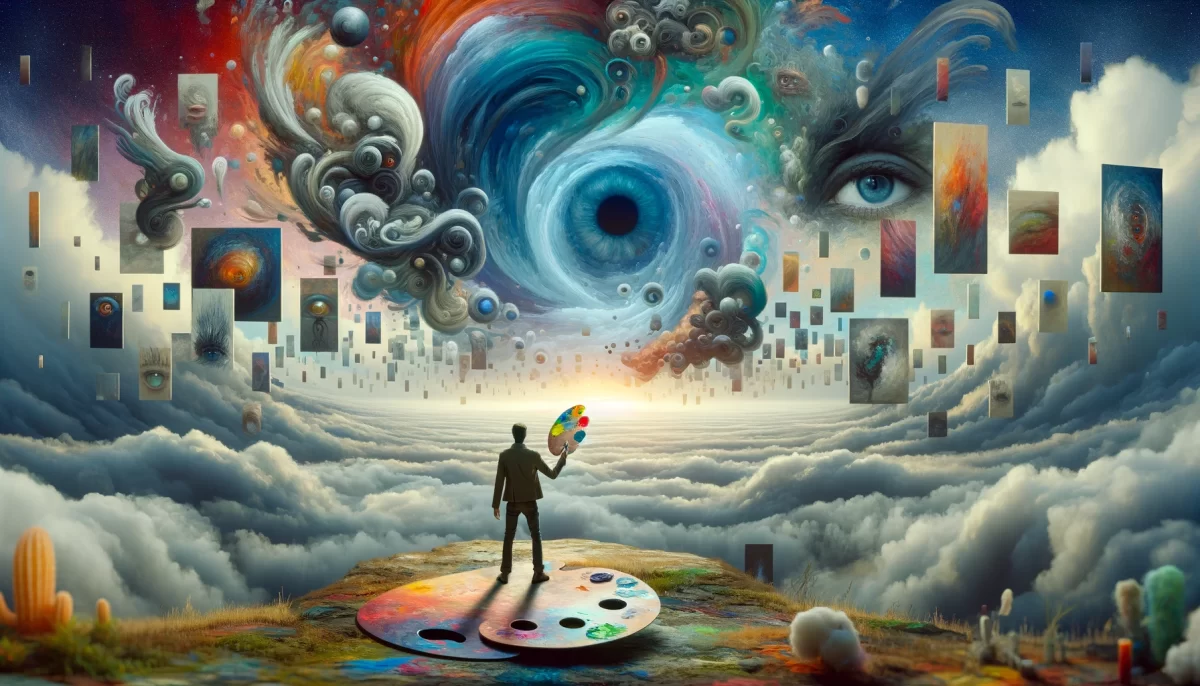
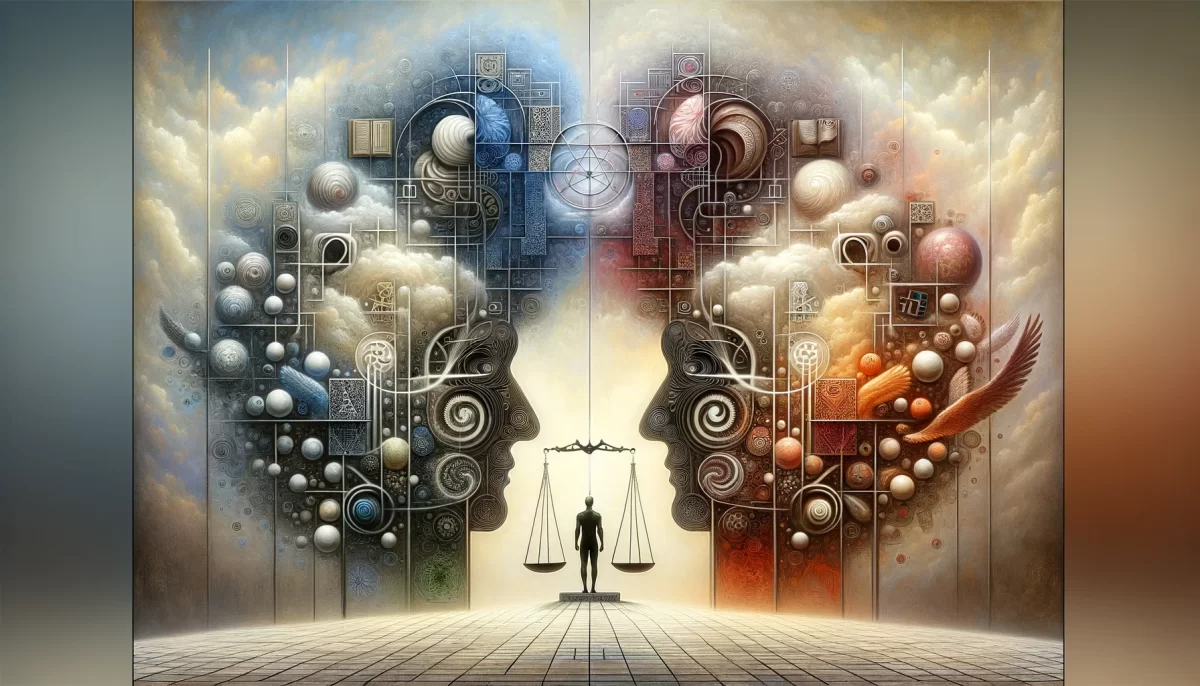


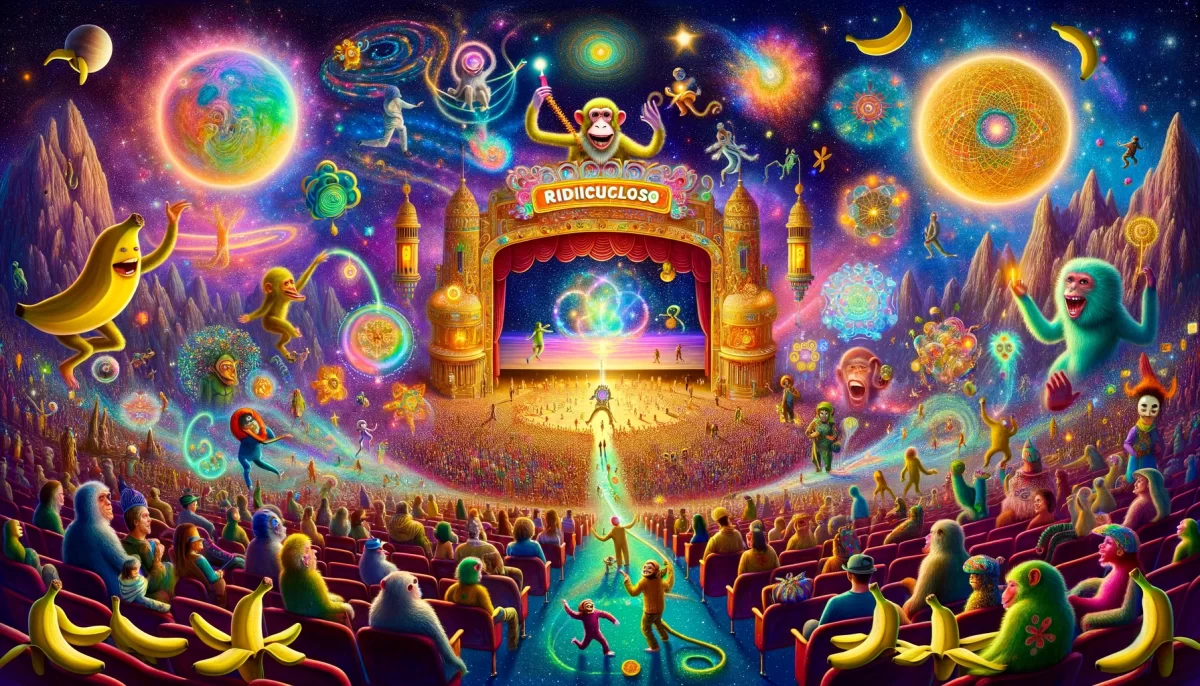
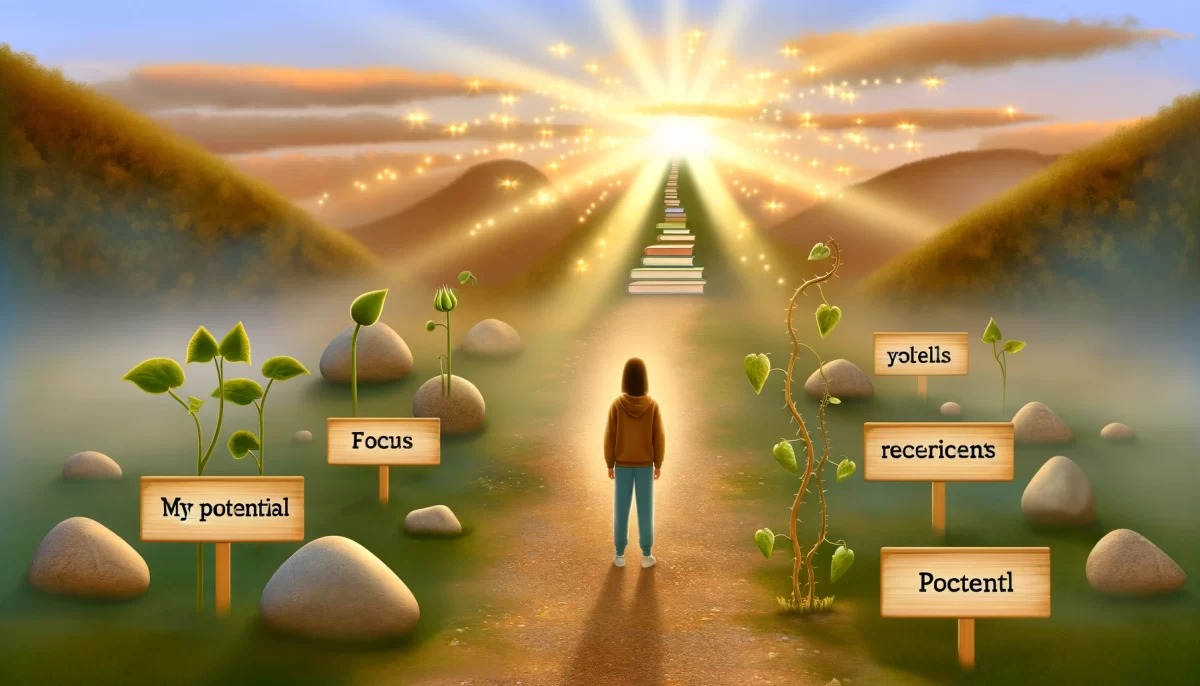

Leave a Reply